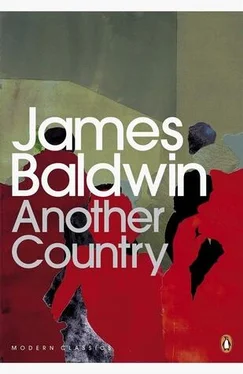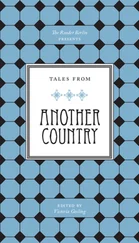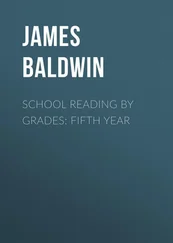James Baldwin - Another Country
Здесь есть возможность читать онлайн «James Baldwin - Another Country» весь текст электронной книги совершенно бесплатно (целиком полную версию без сокращений). В некоторых случаях можно слушать аудио, скачать через торрент в формате fb2 и присутствует краткое содержание. Год выпуска: 2001, Издательство: Penguin Books, Жанр: Современная проза, на английском языке. Описание произведения, (предисловие) а так же отзывы посетителей доступны на портале библиотеки ЛибКат.
- Название:Another Country
- Автор:
- Издательство:Penguin Books
- Жанр:
- Год:2001
- ISBN:нет данных
- Рейтинг книги:3 / 5. Голосов: 1
-
Избранное:Добавить в избранное
- Отзывы:
-
Ваша оценка:
- 60
- 1
- 2
- 3
- 4
- 5
Another Country: краткое содержание, описание и аннотация
Предлагаем к чтению аннотацию, описание, краткое содержание или предисловие (зависит от того, что написал сам автор книги «Another Country»). Если вы не нашли необходимую информацию о книге — напишите в комментариях, мы постараемся отыскать её.
is a novel of passions — sexual, racial, political, artistic — that is stunning for its emotional intensity and haunting sensuality, depicting men and women, blacks and whites, stripped of their masks of gender and race by love and hatred at the most elemental and sublime. In a small set of friends, Baldwin imbues the best and worst intentions of liberal America in the early 1970s.
Another Country — читать онлайн бесплатно полную книгу (весь текст) целиком
Ниже представлен текст книги, разбитый по страницам. Система сохранения места последней прочитанной страницы, позволяет с удобством читать онлайн бесплатно книгу «Another Country», без необходимости каждый раз заново искать на чём Вы остановились. Поставьте закладку, и сможете в любой момент перейти на страницу, на которой закончили чтение.
Интервал:
Закладка:
James Baldwin
Another Country
Introduction
In the early 1950s, as he was winning fame as a novelist, James Baldwin published a number of essays about the state of his nation which were passionately and elegantly written. His style was not that of the Bible or the pulpit (Baldwin had been a child preacher) but took its bearings from the early sources of English eloquence: Francis Bacon, Thomas Browne, William Hazlitt. His tone did, however, borrow something from his preacher days: it was fearless and urgent, combining a concern about public policy and public attitudes with a probing and oddly intimate concern with the dark and uncharted spaces within the self. Baldwin’s nation in these essays was emphatically America, his self an American self. His voice, so stylish, insisted that the language — English — in all its nuance and subtlety belonged to him, just as America in all its cruelty and hatred belonged to him too.
Baldwin published his first novel, Go Tell It on the Mountain , in 1953 when he was twenty-nine. Two years later his first book of essays, Notes of a Native Son , came out, and in 1956 his second novel, Giovanni’s Room , was published. In 1961 he published a second book of essays, Nobody Knows My Name , and the following year his third novel, Another Country , an immediate bestseller in the United States, appeared. The success of his early books allowed his restlessness and his mercurial nature an immense freedom. Between 1956, when he began to work in earnest on Another Country (there are also some versions and drafts from much earlier) and the end of 1961, when the book was finished, James Baldwin crossed the Atlantic by sea at least six times. He moved between Paris and New York, but he did not stay for long in either place. He went to Switzerland and Stockholm and Israel, San Francisco and Chicago and Fire Island. He worked at the MacDowell retreat for artists. He lived in the guest lodge at William Styron’s house in Connecticut. He lived in a village in Corsica.
In 1961, in the Introduction to Nobody Knows My Name , he wrote: ‘these essays were written over the last six years, in various places, in many states of mind’. It is fascinating to trace the roots of Another Country not only in Baldwin’s personal life and the lives of his friends, but also in his own thinking and writing about the interior life of America, the stained soul of his compatriots, in the years before he completed the book.
There was a huge generosity in his nature and a love of company. In those years he gave interviews and went to parties; he had love affairs and many friends; he kept in close touch with his family. He also worked hard. He travelled to report on the American South. He made speeches. He wrote plays and screen-plays, essays and articles and short stories. Finally, he went to Istanbul. And all this time he carried the story of Another Country in his head and versions and drafts of the book in his luggage. All this time he sought ease and peace and time to finish the book.
Early in the first essay he wrote, James Baldwin tried to list his influences and he included ‘something ironic and violent and perpetually understated in Negro speech’. In the early pages of Another Country , as we watch Rufus and Leona seducing each other, Baldwin’s ear for that speech offers him great possibilities for expression and drama. Rufus is cool and sexy and understated, his speech is full of sharp irony and street-wise self-confidence. But in the background all the time there is violence and doom. The opening pages let us know how close to the end Rufus is, but even in the passages where Rufus is high on life, there are always snatches of doom-laden memory or images of doom and darkness. Rufus’s self-invention, his joy at the night and the party and the company and the sex, are all thin and will not last. He is a tragic hero caught between the time when men such as him had no possibility of freedom and the time to come. The city has opened its doors to him, not enough for him to feel free, but just enough for him to feel danger and threat. This offers an astonishing edge and intensity to the pleasure he takes in his own speech, the music, the night, like someone who has been briefly released from solitary confinement.
It is Baldwin’s genius to have thought so carefully and deeply about what to do with such a figure in fiction, to resist the temptation to have Rufus, who is so lovable, so innocent and so full of rage, made into a public martyr. Baldwin looked to Henry James rather than Richard Wright. He wanted the danger to come from within. He knew, in any case, that for Rufus and people like him this was where the danger lay. In his meditation on the work of Richard Wright, Baldwin wrote about the root of the violence in Wright’s fiction. ‘The root is rage,’ Baldwin wrote. In another essay on Wright, he wrote
And there is, I should think, no Negro living in America who has not felt briefly and for long periods, with anguish sharp or dull, in varying degrees or to varying effect, simple, naked and unanswerable hatred; who has not wanted to smash any white face he may encounter in a day, to violate, out of motives of the cruelest vengeance, their women, to break the bodies of all white people and bring them low, as low as that dust into which he himself has been and is being trampled; no Negro, finally, who has not had to make his own precarious adjustment to the ‘nigger’ who surrounds him and to the ‘nigger’ in himself.
Rufus has felt this hatred, he has been brushed by its wings, but this is not enough for a novelist. In 1960, in ‘Notes for a Hypothetical Novel’ Baldwin began to muse about how little essential difference there was between the races in the United States, and this idea — that the other characters in Another Country , the white people, suffer too, and are confused, and that their suffering and confusion mirrors the suffering and confusion of Rufus — helped him to write this original and complex novel. ‘Anyway, in the beginning,’ Baldwin wrote,
I thought that the white world was very different from the world I was moving out of and I turned out to be entirely wrong. It seemed different. It seemed safer, at least the white people seemed safer. It seemed cleaner, it seemed more polite, and, of course, it seemed much richer from the material point of view. But I didn’t meet anyone in that world who didn’t suffer from the same affliction that all the people I had fled from suffered from and that was that they didn’t know who they were. They wanted to be something that they were not.
Baldwin began with the characters of Ida and Vivaldo (Vivaldo in earlier drafts had been black), ‘but I couldn’t find a way to make you understand Ida’, he told the Paris Review . ‘Then Rufus came along and the entire action made sense.’ Baldwin had been thinking enough about how other novelists would present the fate of Rufus to know not to follow them; he knew to make Rufus bad as well as brilliant, to place a violence and a self-destructive charm at the core of him. He made Rufus into a version of himself, but he also made Rufus a version of his friend Eugene Worth, whom he met in 1943 (when Baldwin was nineteen) and who committed suicide by jumping off the George Washington Bridge in December 1946. Two years later Baldwin moved to Paris. I didn’t know what was going to happen to me in France,’ he told the Paris Review , ‘but I knew what was going to happen to me in New York. If I had stayed there, I would have gone under, like my friend on the George Washington Bridge.’ Rufus becomes a way of briefly bringing his friend back to life, while at the same time dramatizing and imagining a road Baldwin himself could have taken. He used the city he knew, especially in his late teens, the years after his father’s death, when he moved from job to job and moved between jobs at the edge of poverty and despair. He used small events, such as his brother’s teeth being knocked out by a white officer in the Navy, such as himself and some friends being beaten up in a bar. He also used things which had nothing to do with his own background or his own experiences but to do with certain tones and atmospheres he was soaking up: Another Country is full of the sort of darkness and sense of gloom you get in French fiction and philosophy of the period, and it is also full of the pessimism and claustrophobia of Ingmar Bergman’s films. Baldwin admired Bergman, he went to Stockholm to interview him and became friends with him.
Читать дальшеИнтервал:
Закладка:
Похожие книги на «Another Country»
Представляем Вашему вниманию похожие книги на «Another Country» списком для выбора. Мы отобрали схожую по названию и смыслу литературу в надежде предоставить читателям больше вариантов отыскать новые, интересные, ещё непрочитанные произведения.
Обсуждение, отзывы о книге «Another Country» и просто собственные мнения читателей. Оставьте ваши комментарии, напишите, что Вы думаете о произведении, его смысле или главных героях. Укажите что конкретно понравилось, а что нет, и почему Вы так считаете.












